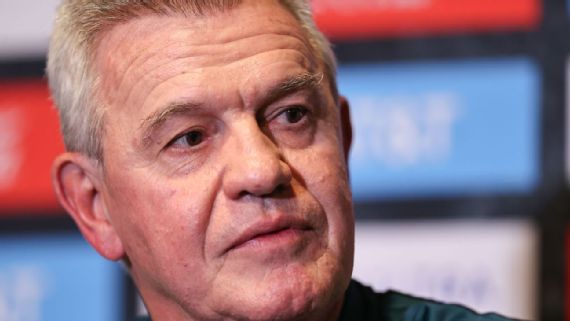Is there an emotional issue within the Mexican National Team? Javier Aguirre doesn’t rule out this possibility, but he assures that work is already underway to address it. With a firm tone, he warned, “Whoever doesn’t respond will have to go.”
The question arose regarding a potential crisis of confidence and insecurity among Mexican players, especially after the failure in Qatar and the way in which coaches Diego Cocca and Jaime Lozano were first exalted and then discarded. The uncertainty seems to have left a deep mark on the team.
“It’s possible,” Aguirre admitted. “It’s not easy to measure if a player is emotionally at a three out of ten, or if they are dragging defeats, failures, or bad moments. But that’s my job. My job is to look them in the eyes, scrutinize, interrogate, and draw conclusions. And whoever doesn’t respond will have to go!” the coach declared after the 3-0 victory over New Zealand.
Commitment and Clear Mindset
Javier Aguirre made it clear that he is looking for committed players with the right mindset to face the great challenge of playing a World Cup at home. “The player I need is the one who understands that playing a World Cup in your country is a once-in-a-lifetime opportunity. There’s no greater satisfaction than a World Cup, and even more so at home. That’s why I need people who are clear in mind (points to his head) and in heart (marks his chest). And I’m in that process, working on it,” Aguirre stated with determination.
The Mexican National Team will face Canada next Tuesday, thus closing this initial experimental phase under Aguirre’s direction. However, challenges are already emerging: César Montes is traveling to Russia, and Julián Quiñones is recovering from a muscle strain. Additionally, Luis Chávez might be ruled out due to a similar issue.
Self-Criticism and Demands to Mexican National Team
Despite the victory, Javier Aguirre wasn’t entirely satisfied with the team’s performance. “I didn’t like that we could have scored six goals but only managed three. We need to be more aggressive and assertive. At times, we were playing well, and then suddenly, the light would go out—we were inconsistent. We need to be consistent and finish all our plays,” the coach reflected, showing his high standards and self-criticism.
The fans in Los Angeles, usually loyal and festive, did not fill the Rose Bowl this time, a stadium that typically turns green with the unwavering support of Mexican followers. Despite promotions and even free tickets with purchases, the attendance was only 25,000 people, a significantly low number by Tri standards.
“I understand that the fans are sovereign. They expect something in return for the price of their ticket. It was unlikely to fill a stadium as big as the Rose Bowl, but 25,000 is not a bad turnout. In Canada, against the United States, they didn’t fill the stadium either,” Aguirre explained, demonstrating his understanding of the situation.
Responding to the Fans
The coach explained that during halftime, he reprimanded the group to motivate them to repay the fans’ financial sacrifice by performing on the field. “The intention was for the 25,000 fans to leave happy, not angry or disappointed, but pleased to see their team. I focused on that during halftime,” he commented.
Aguirre emphasized that, in line with the Mexican Football Federation’s (FMF) project for the national teams, the supervision and scouting of talent will allow him to present new prospects for the World Cup, which he intends to develop over the coming years.
Therefore, he emphasizes that there is no need to rush or succumb to unnecessary pressure. “We have time to prepare. There is a need to win, but it is not an urgency. We’re not in qualifiers. We have time to seek the best preparation, with more calmness. In my area of work, I’m respected and have a full support team—more than 70 people and specialists at the service of the players,” Aguirre concluded, visibly confident in the future of his team.






